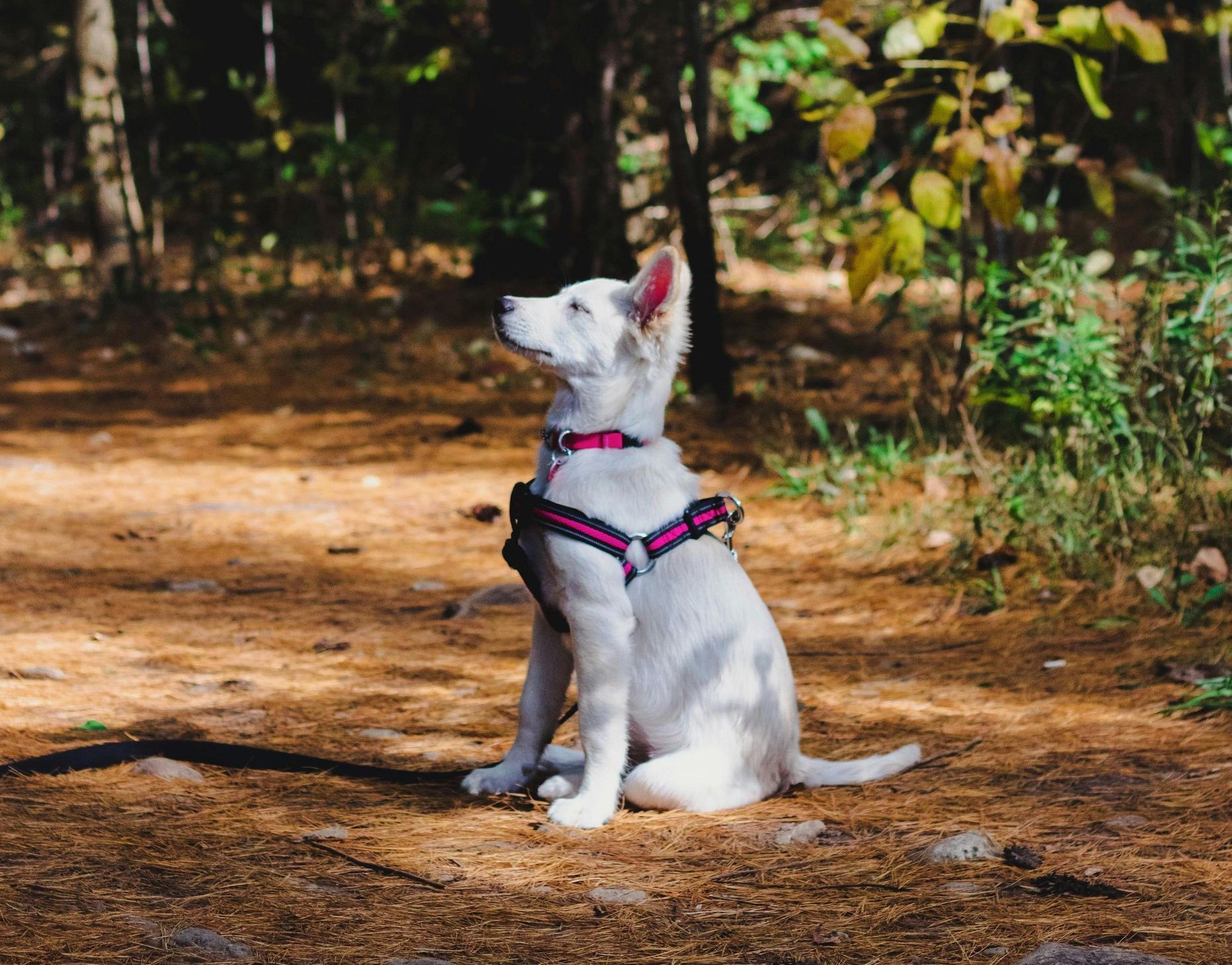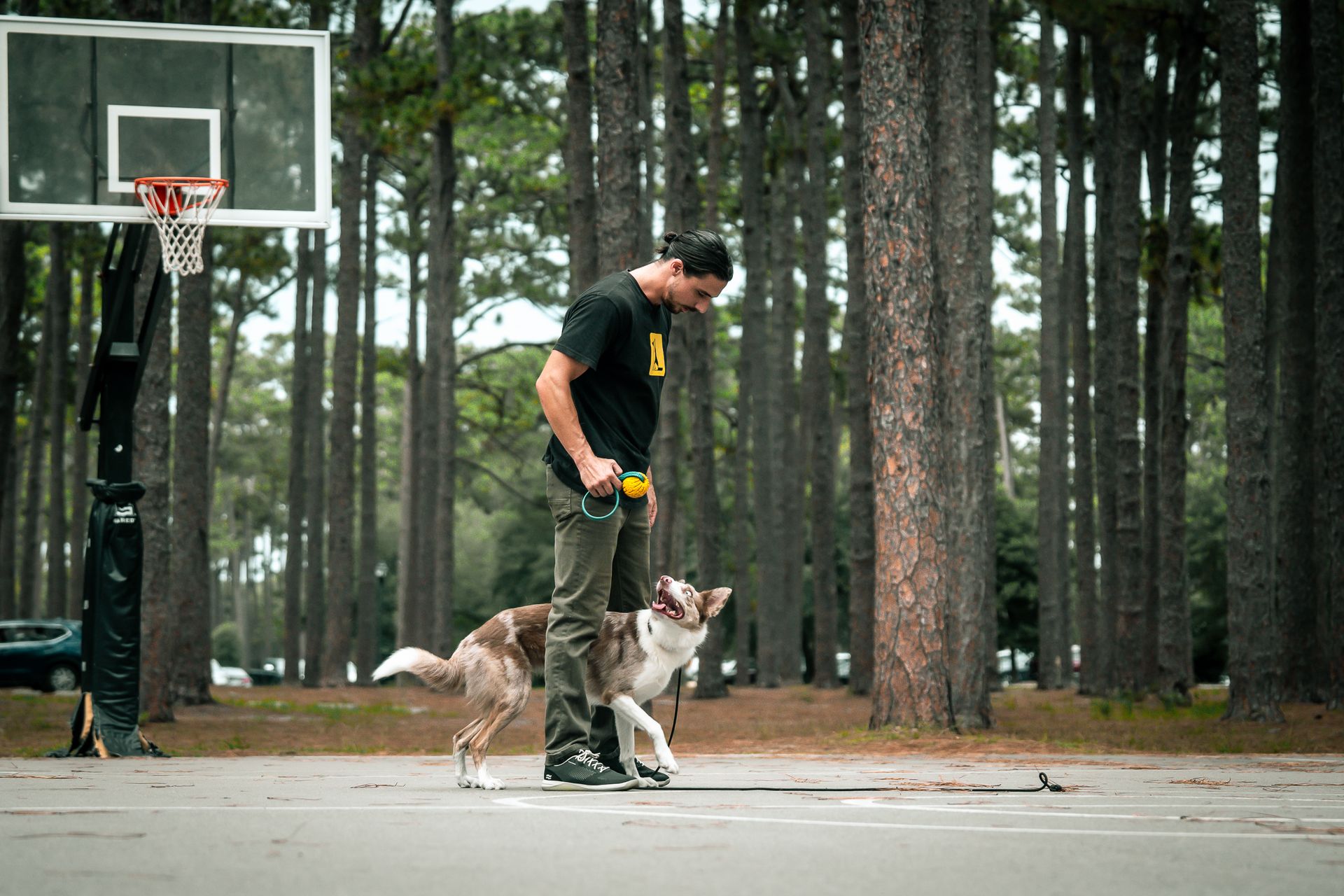Top 5 Training Tips for Wilmington Dog Owners

Dog training is about building trust, creating motivation, and helping dogs thrive in real-life situations. Whether you’re raising a new puppy or working through behavior challenges, a responsive, play-based approach can make all the difference. At Dogwood Canine Academy, we focus on helping Wilmington dog owners build strong relationships with their dogs while fostering reliable behavior through tailored training. Here are our top 5 tips to get you started
1. Build the Relationship First
The foundation of good training is a strong relationship with your dog. Dogs that trust and enjoy working with you will naturally be more responsive. Focus on clear communication, positive experiences, and understanding your dog’s unique needs.
Example: Spend time observing your dog’s body language and preferences. Some dogs respond best to play, while others enjoy verbal praise or physical touch.
2. Make Training Fun and Motivating
Dogs learn best when they’re engaged and having fun. Rather than relying solely on treats, incorporate play, toys, and movement into your training sessions. Keep training sessions upbeat and interactive to keep your dog motivated and eager to learn.
Tip: Use your dog’s favorite toy as a reward or turn training into a game. For example, practice “recall” by calling your dog to you and rewarding them with a game of tug or fetch.
Example: Instead of just teaching “sit,” ask your dog to sit before tossing a ball—this reinforces the behavior while keeping it fun.
3. Create Real-Life Training Opportunities
Training should fit seamlessly into your daily life. Practice behaviors in real-world situations to ensure your dog can respond reliably, no matter the environment.
In Wilmington, take advantage of dog-friendly spots like Hugh MacRae Park or local walking trails to practice recall, loose-leash walking, and calm behavior around distractions.
Tip:
Start small with low-distraction environments and gradually increase the challenge as your dog builds confidence.
4. Address Challenges with Patience and Play
Every dog encounters challenges during training—it’s part of the process! When behaviors like leash pulling or reactivity arise, stay patient and creative. Use play to redirect energy and keep your dog engaged.
Example: If your dog pulls on the leash, turn the experience into a game by changing direction frequently and rewarding them when they stay with you.
At Dogwood Canine Academy, we specialize in customized
behavior modification plans that meet your dog’s unique needs.
5. Stay Flexible and Responsive
Dogs are individuals, and what works for one may not work for another. Be ready to adjust your approach based on your dog’s progress. The key is to remain consistent, curious, and responsive to what your dog is telling you.
Tip: Keep a training journal to track what motivates your dog most. Use that information to fine-tune your training plan.
Bonus Tip: Seek Professional Guidance When Needed
Some challenges benefit from expert support. If you’re struggling with specific behaviors or want a personalized training plan, working with a professional can give you the tools and confidence you need.
At Dogwood Canine Academy, we offer customized training programs that focus on creating lasting results through play, motivation, and relationship-building.
Ready to Strengthen Your Bond with Your Dog? Contact us today to learn more about our personalized
training programs in Wilmington, NC!
Web Design By
Proudly Serving Wilmington, NC and Surrounding Areas.

Web Design By
All Rights Reserved | Dogwood Canine Privacy Policy | Terms and Conditions

